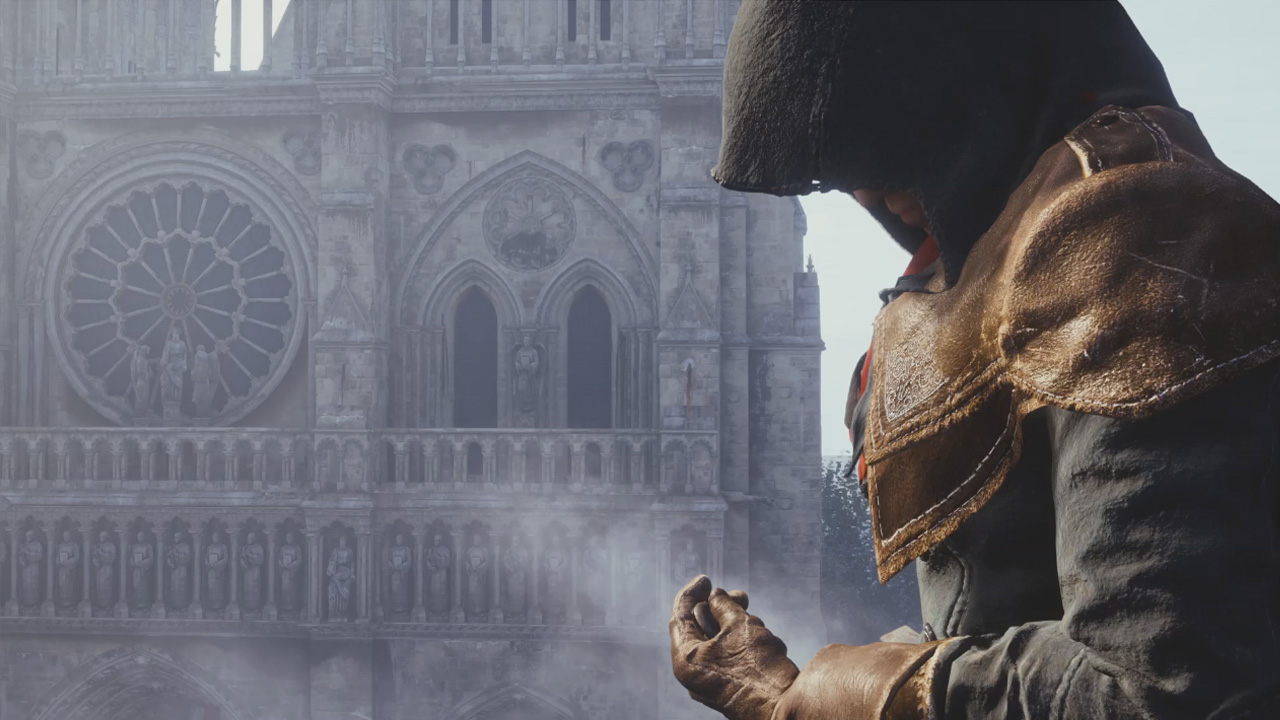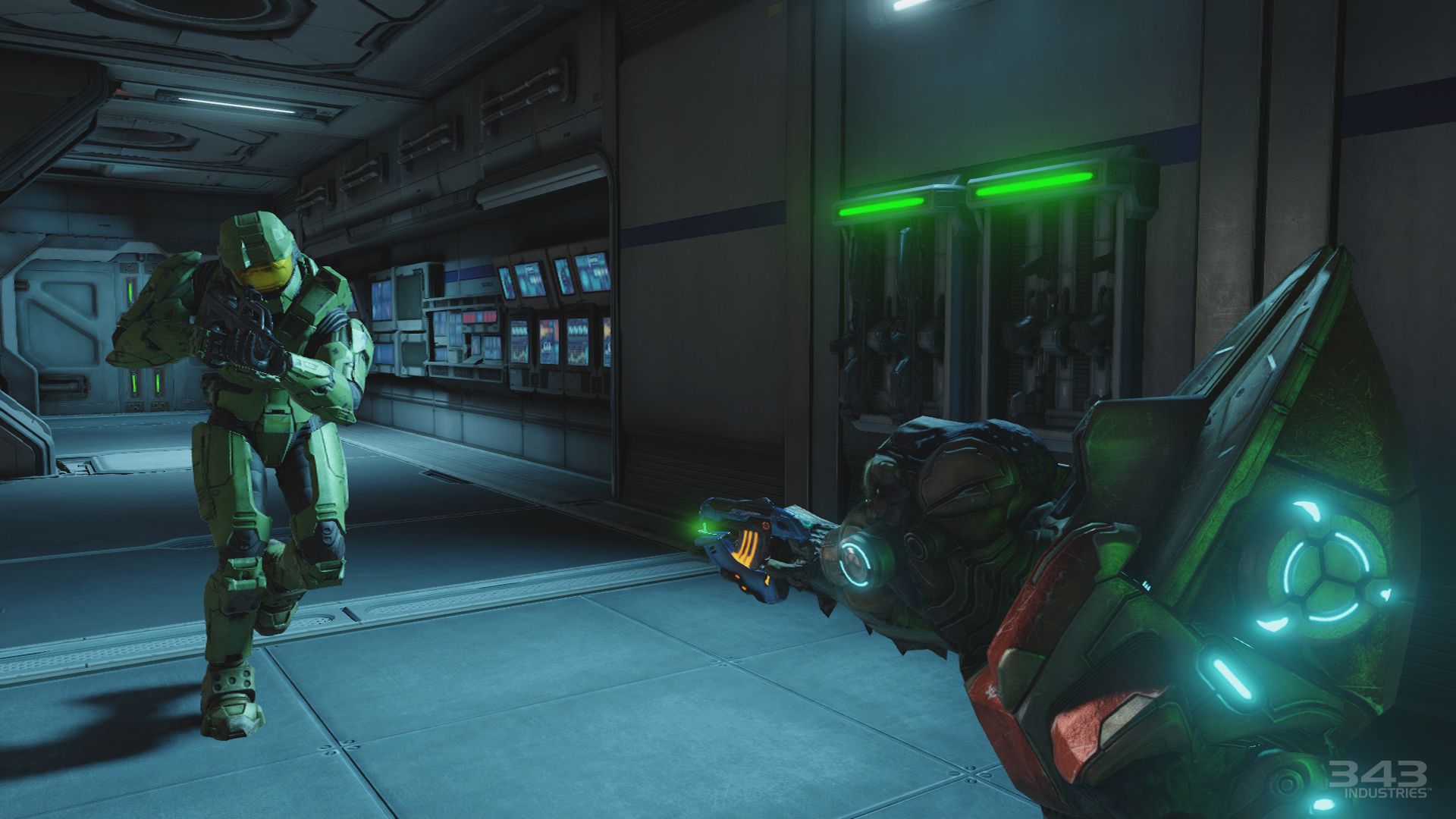Why Do People Buy Broken, Buggy Games?
Gamers who get up in arms about buggy launches are not representative of the overall market, and publishers know it.


If you picked up Assassin's Creed Unity or Halo: The Master Chief Collection when they first released, there's a good chance that you were sitting on a $60 paperweight until the first patch hit. There's nothing new about major publishers releasing games that are almost unplayable, and the size of a game's budget makes no difference. Series from Battlefield to The Elder Scrolls have grappled with poor performance at launch, and yet publishers rarely seem to feel any kind of heat for it.
Take Assassin's Creed Unity as an example. Although I loved the game (check out my review to learn why), it didn't take me long to realize that my experience with the PS4 version was not universal — especially for people who played on the almost unconscionably buggy PC version of the game. However, Assassin's Creed Unity is doing gangbusters business, especially in the United Kingdom, where it did even better than the critically praised Assassin's Creed IV: Black Flag when Black Flag launched last year.
MORE: 100+ Tech Gift Ideas for Holiday 2014
Halo: The Master Chief Collection lost a full star and an Editor's Choice banner on our site due to its awful matchmaking, which kneecapped the game's touted multiplayer features. Now, two weeks after the title's release and multiple patches later, the game is still in rough shape.
Gamers once looked to series like Halo and Assassin's Creed as hallmarks of quality and stability in the gaming sphere; buggy, glitchy games were solely the purview of mid-budget or indie studios. Now, you're almost more likely to get a totally stable indie game than a stable brand-new, big-budget title, particularly if said title involves multiplayer features.

Before you get too up in arms, though, I have some bad news for you: While buggy, busted games are becoming all too familiar, gamers don't seem to care very much about it. Oh, sure, if you're reading this piece, you might be ready to jump to the comments right now and tell me that you care. And that's undoubtedly true. Remember, though, the old adage: "Only SOBs write letters." Gamers who get up in arms about buggy launches are not representative of the overall market, and publishers know it.
Day one patch
When was the last time you bought a brand-new, big-budget game that didn't come with a day-one patch? I can't think of one in recent memory. To be honest, I can't think of one without going back to the early days of the Xbox 360, or even perhaps the last days of the PS2.
PCs and consoles with constant Internet access are double-edged swords. On the one hand, they allow developers to correct bugs and glitches that sneaked their way into the retail versions of games. On the other hand, Web access arguably incentivizes developers to rush half-baked products out the door as soon as possible, knowing full well that they can just patch the games later.

Here's the kicker: For the most part, the audience is totally cool with this approach. "The average consumer votes with their wallet, and they have shown no significant negativity towards buying most games that release with buggy content," Sartori Bernbeck told Tom's Guide. Bernbeck is a senior market analyst with EEDAR, a video game consulting firm.
"Despite a vocal minority of outcry, it seems most gamers are either uninformed of bugs when they purchase the game, or are fine with said bugs, knowing that the developer will likely be fixing them soon," he said. This helps explain why record-breaking sales and hundreds of bilious forum threads excoriating a buggy game need not be mutually exclusive.
No one likes to see something he or she hates in the mirror. But the cold, hard truth of the matter is that we, as gamers, have created an environment in which releasing a bug-free, big-budget game in a timely manner is almost impossible.

Variables upon variables
The complexity of current games shares some blame, too. Creating a technically flawless game was much easier when you had to guide a single protagonist through a dozen linear levels, and every other character in the game was actively trying to kill you.
But consider a modern game like Assassin's Creed Unity, with its hundreds of civilians, guards with multiple weapons, life-size recreation of Paris, plot missions, side quests, companion-app connectivity and cooperative play. With so many variables coming into play for even a casual stroll along the Seine, Ubisoft cannot possibly predict every bug, much less patch it.
This is not meant to excuse Assassin's Creed Unity's buggy state at launch. Rather, it illustrates that you can have next-gen open-world games with dozens of hours of content, or you can have a perfectly polished product right out of the gate, but you cannot have both.
"There are, of course, certain games with major bugs that significantly hinder gameplay and do not get fixed in a timely manner, if ever," Bernbeck allowed. But venting bile at big publishers who have every intention of bringing their games up to ship shape may be misplaced, he said. "As technology has advanced, game development has become more of a complex procedure. … There are so many complexities in modern game development that lead to a very difficult hope for developers to catch all bugs before a title is released."

For better or worse, buying a big-budget game upon launch seals you into an unspoken arrangement with the developer: You become an unpaid arm of its QA (quality assurance) branch. Even the best QA teams can only evaluate and patch so many bugs before a game launches.
Like writing a novel, if you insist on absolute perfection in every aspect, you'll die of old age before getting something salable out the door. Thousands of players taxing the servers, experimenting with gameplay systems and reporting what they find (or not — most developers can monitor metrics from your game, even if you don't specifically report anything) is one of the best ways for developers to patch issues in an efficient and timely manner.
"Developers can always do more internal QA testing in hopes of catching and fixing every bug … but release dates do need to be hit, and the average consumer has not shown an unwillingness to purchase games with bugs," Bernbeck said. "There seems to be a working relationship between developers and early adopters, who are helping the final QA process, if you will." You may not be thrilled about paying $60 to join a de facto bug-hunting team, but the faster players find bugs, the faster a developer can patch them.

Developer, patch thyself
While bugs and glitches can be obnoxious in a single-player game, they can be life and death in a game that sells itself on multiplayer. This is why Tom's Guide (and, if forums are any indication, the gaming community in general) was much harder on The Master Chief Collection than on Assassin's Creed Unity.
MORE: Best Gaming Desktops 2014
"The Master Chief Collection's issues are very unfortunate for the title," Bernbeck said. "Issues pertaining to online matchmaking are not new to the industry, but they are issues that developers tend to prioritize due to them hindering a large portion of the gameplay experience." As with Unity, Bernbeck theorizes that once Microsoft patches the issues, the majority of consumers will buy and enjoy the game, as well as future Halo releases, rather than nurse resentment toward the company.
Of course, there will always be gamers for whom bugs are completely unacceptable, and that's a fair attitude to adopt. Unfortunately for them, though, the market has spoken, and it's not very critical of buggy games, provided they get patched within a reasonable time frame. These gamers' best recourse is to avoid pre-ordering a game if it comes from a company (like Ubisoft) with a bad reputation for day-one difficulties and to continue voicing their displeasure (civilly) via email, social media and forums.
- Dragon Age: Inquisition Review - Fighting the Good Fight
- Best Gaming Mice 2014
- Alien: Isolation — Everyone Will Hear You Scream
Marshall Honorof is a Staff Writer for Tom's Guide. Contact him at mhonorof@tomsguide.com. Follow him @marshallhonorof. Follow us @tomsguide, on Facebook and on Google+.
Get instant access to breaking news, the hottest reviews, great deals and helpful tips.
Marshall Honorof was a senior editor for Tom's Guide, overseeing the site's coverage of gaming hardware and software. He comes from a science writing background, having studied paleomammalogy, biological anthropology, and the history of science and technology. After hours, you can find him practicing taekwondo or doing deep dives on classic sci-fi.
-
junkeymonkey and not only that they got to rely fully on a 3ed party like steam for anything plusss there content and malwre never catch me paying for a game that a 3ed party has more control over my computer/game than I doReply
maybe if you send them more money they may try to give you a patch or better support ?? cause in the end with out them you got nothing but there client on your drive -
Xivilain Compare the game industry with the movie or music industry. Imagine if your favorite artist released an incomplete album, with half-baked ideas. Or tried watching the third Hobbit film by Peter Jackson, only to see glitches like Bilbo falling through the earth to his death 15 minutes in the movie, rendering the rest of the film, UNWATCHABLE. - - - This is the kind of shit video game players are dealing with. - - - We voted with our wallets, because there was an EMBARGO on public REVIEWS of the game , and we had no other way of finding out if it was GOOD OR NOT. - - - No other industry can get away with the same B.S. as the gaming industry. No one.Reply -
neiroatopelcc I've worked around the problem by simply stopping to preorder games. I burnt my fingers with Thief, Elder Scrolls Online and Sims 4 this year. And only ESO tried to mend the problems. For Thief it took me 4 months to find a solution that enabled me to complete a mission without the game crashing (tech support was of no use).Reply
So I've simply decided to get alternative versions of a game and then decide to pay for it or not at a later time. For that reason - if farcry is on discount on steam tomorrow when the sale starts, I'll pick it up, because I know it's a good game.
And in about a week I'll know if preordering the crew was another mistake to pile on top of the first three mentioned. Won't happen next year. -
red77star Here is a rule I go buy. I never pay for a game more than $9.99 because it is not worth it. I get all my PC games via Steam when price drops below $10 or they have it for <$10 on some sale otherwise thanks no. I just got Far Cry 3 which runs great and I figured don't want to pay $60 to be a beta tester for Ubisoft or some other company along with AMD and Nvidia until they patch game and release decent drivers for it. There are so many awesome games out there you can pick for <$10 like Far Cry 3 I recently got. I will buy Far Cry 4 when price drops < $10 :)Reply -
Lmah I learned my lesson after Watch_Dogs and Thief, will never pre-order again under any circumstances. Sometimes games are never fixed, look at Metro Redux releases people still can't even play the games. Wasteland 2 still has no exclusive fullscreen support.Reply
Game developers need to shape up, in the 90's developers had to release a good product from the start, seems like they have been getting really lazy since the internet is more widely used now, so they can promise to fix games with patches and never come around to it. Just like these Early Access games, they get people to pay for it and have no obligation to ever completely finish making the game since they can sit in Early Access forever and still collect money. -
soccerplayer88 Unfortunately I think games are becoming viewed more as investments instead of actual games. I have 5 early access/alpha games at the moment over half of which have been released over a year ago and still not complete.Reply
I have personally changed my policy to not buy those types of games anymore as well as avoiding preorders. As most people already know, speak with your wallets. Developers only listen when money is involved. -
Merry_Blind All this crap is one of the reasons why I came back to Nintendo after all these years of gaming on other platforms. These days, all I see on video game news is disappointement and people mad about buggy or underwhelming games. Meanwhile, I'm just here, happy with my Wii U, buying flawless exclusives day 1 all year through.Reply
I hope people are already tired of all this and will get Wii Us this holiday season to rince the bitter taste they have with some sweet, sweet Nintendo magic. -
tobalaz Why do people pay so much to be "Beta testers" at retail launch?Reply
Content.
If you don't preorder, you miss out on content that is sold as a preorder bonus.
Yup, that's right, if you don't volunteer to be a full priced beta tester you LOSE part of the game.
Total BS
I think most of us adults are to the point we can wait for a game to run correctly before we buy it anymore, but kids have to have the latest and greatest NOW, and mommy and daddy are always going to run out and buy buy buy for Jr. -
Merry_Blind @Marshall HonorofReply
Speaking of which, I think it would have been more than appropriate to mention Nintendo in this article, as they are one of the few examples of developers that constantly release technically flawless games on Day 1. -
majorlag I learned a long time ago, to never buy games at release.Reply
Last time I did that was a week long gaming session playing multiplayer Heroes of Might and Magic III. IV came out, took the day off, ran to Best Buy, Friend and I bought a copy and went over to my friends LAN party, both installed the game, launched, and was like, ummm, where is multiplayer!!??? HOMM 2 and 3 both had this feature at release, don't recall if 1 did. It took them 6 months! to get the patch out to do multiplayer.
I will never buy a game on day one again. I find a permanent evaluation copy and try it, if I like it I buy it. I did end up buying HOMM V complete that came with IV and its expansions.
~Majorlag

